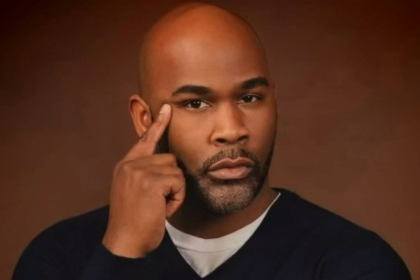Leadership transitions signal a new era of corporate accountability

The corporate world of 2024 is experiencing a historic shift, with an unprecedented wave of CEO departures shaking up some of America’s largest corporations. In a trend that has been described as the “Great CEO Migration,” many high-profile leaders are stepping down or transitioning out of their roles, leaving companies with new management and uncertain futures. This surge in leadership changes marks a fundamental transformation in how boards, stakeholders, and shareholders approach leadership in an era marked by economic volatility and technological disruption.
Economic catalysts and market pressures
As businesses continue to recover from the economic impacts of the COVID-19 pandemic, they now face a host of new challenges. Economic pressures such as rising interest rates, persistent inflation, and shifting consumer behaviors have reshaped the business landscape, making it more difficult for companies to predict growth trajectories and navigate market volatility. These forces have caused many boards of directors to take a closer look at executive performance, leading to an uptick in leadership changes.
With companies under heightened scrutiny, it has become clear that leaders must be able to respond quickly and decisively to unpredictable market shifts. As a result, companies have been accelerating CEO transitions in a bid to secure leadership that can meet the complex demands of the post-pandemic economy.
Technology and innovation demands
One of the most significant driving factors behind the Great CEO Migration is the rising demand for leaders who can navigate rapid technological change. As industries are increasingly disrupted by advancements in artificial intelligence, digital transformation, and automation, companies are seeking leaders who can not only manage traditional business functions but also drive innovation and adapt to new technological realities.
Technology has become a critical part of every business model, and companies that fail to keep up with digital trends risk falling behind their competitors. CEOs must now have a solid understanding of emerging technologies, and the ability to make bold decisions about integrating these technologies into their organizations. As a result, companies are prioritizing leaders who are not just business-savvy, but also technologically literate and able to lead digital transformations effectively.
Stakeholder expectations
The role of CEO has always been demanding, but in recent years, the expectations placed on these leaders have grown significantly. Today’s CEOs must balance the needs and demands of multiple stakeholders, from shareholders and employees to customers and the wider community. Shareholders are focused on maximizing profits and ensuring strong financial performance, while employees seek empathetic leadership and career development opportunities. Meanwhile, consumers expect companies to take social responsibility seriously, demonstrating a commitment to ethical practices, environmental sustainability, and diversity.
This increasingly complex web of expectations has added another layer of pressure on CEOs, leading many to either step down or be pushed out. Boards have become more willing to make leadership changes when CEOs fail to meet these multi-dimensional demands, accelerating the turnover rate and reshaping the corporate landscape.
Notable transitions and their impact
Several high-profile CEO transitions in 2024 have had a significant impact on both the industries they represent and the broader business world. Intel’s leadership change, for example, was prompted by the company’s struggles to remain competitive in the fast-evolving semiconductor industry. With new challenges arising from global supply chain issues and competition from emerging players, Intel’s board felt it was time for a leadership overhaul to help the company stay on track.
Similarly, Boeing’s decision to replace its CEO was influenced by ongoing safety concerns, following a series of high-profile incidents involving the 737 Max aircraft. In response to these challenges, the company opted to bring in fresh leadership to restore consumer trust and revitalize its reputation.
Starbucks also underwent a leadership change as part of an effort to return to the company’s core values and enhance customer experience. With the company facing increased competition from both traditional coffee shops and emerging rivals in the fast-casual space, Starbucks needed a leader who could reinvigorate its brand and connect with consumers on a deeper level.
The role of corporate governance
Corporate governance has evolved significantly in recent years, with boards of directors becoming more proactive in overseeing executive performance and demanding greater accountability from CEOs. The Great CEO Migration is a reflection of this shift, as boards increasingly recognize the importance of leadership that aligns with the values and goals of their organizations.
The traditional CEO model, where leaders were often granted near-absolute authority, is being replaced by a more collaborative and transparent approach. As boards are held to higher standards, they are now more willing to make decisive leadership changes when they believe a CEO is no longer the right fit for the company. This trend has been particularly evident in publicly traded companies, where shareholder influence has grown, and governance practices are under greater scrutiny.
Future implications
The wave of CEO transitions in 2024 signals a new era in corporate leadership. As companies face new challenges, leaders will need to strike a delicate balance between traditional business acumen and modern leadership qualities, such as technological literacy, social awareness, and an ability to adapt quickly to changing market conditions.
In the coming years, we are likely to see an increased demand for CEOs who can successfully lead digital transformations, prioritize employee well-being, and engage with consumers on ethical and social issues. The companies that succeed will be those that find leaders capable of navigating these complex and overlapping demands, while fostering a culture of transparency, innovation, and resilience.
As the corporate world adjusts to these evolving expectations, the Great CEO Migration of 2024 may ultimately prove to be a defining moment in the way businesses are led—and how leaders themselves will be shaped by the challenges of the modern era.












